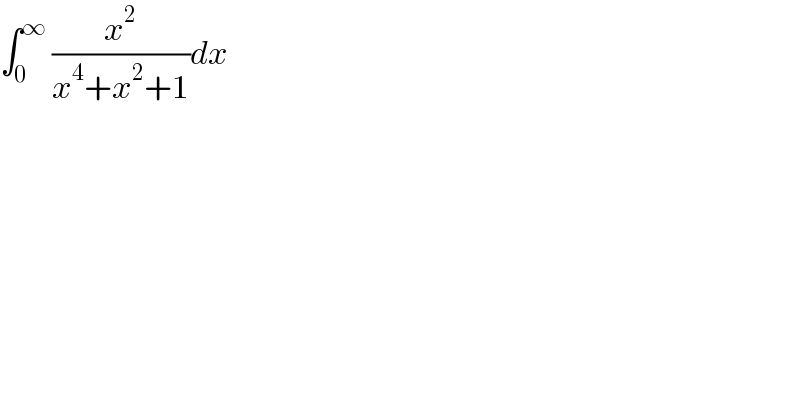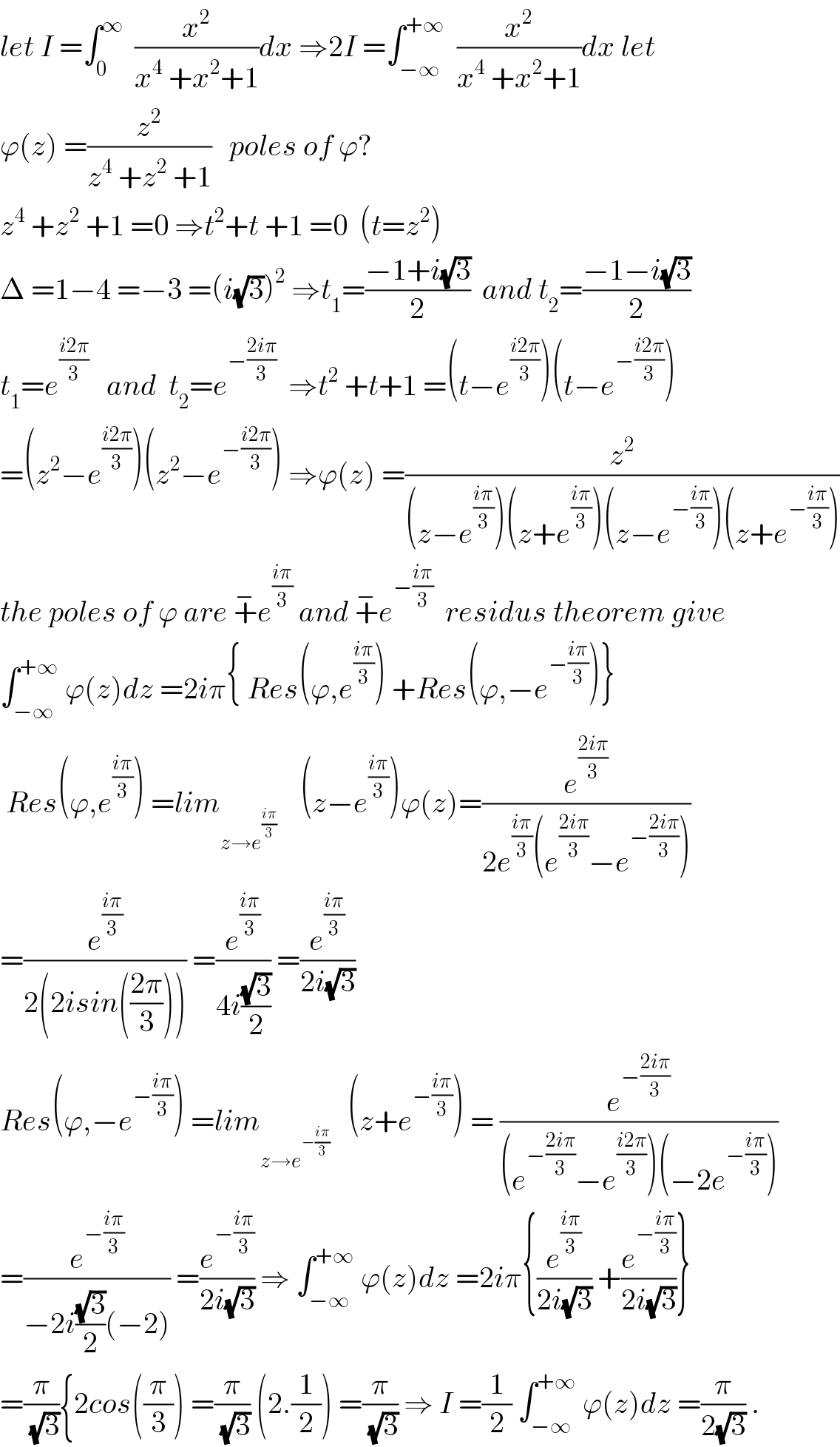
Question and Answers Forum
Question Number 65203 by arcana last updated on 26/Jul/19

Commented by mathmax by abdo last updated on 26/Jul/19

Answered by Tanmay chaudhury last updated on 26/Jul/19

Commented by arcana last updated on 26/Jul/19

Commented by Tanmay chaudhury last updated on 26/Jul/19

